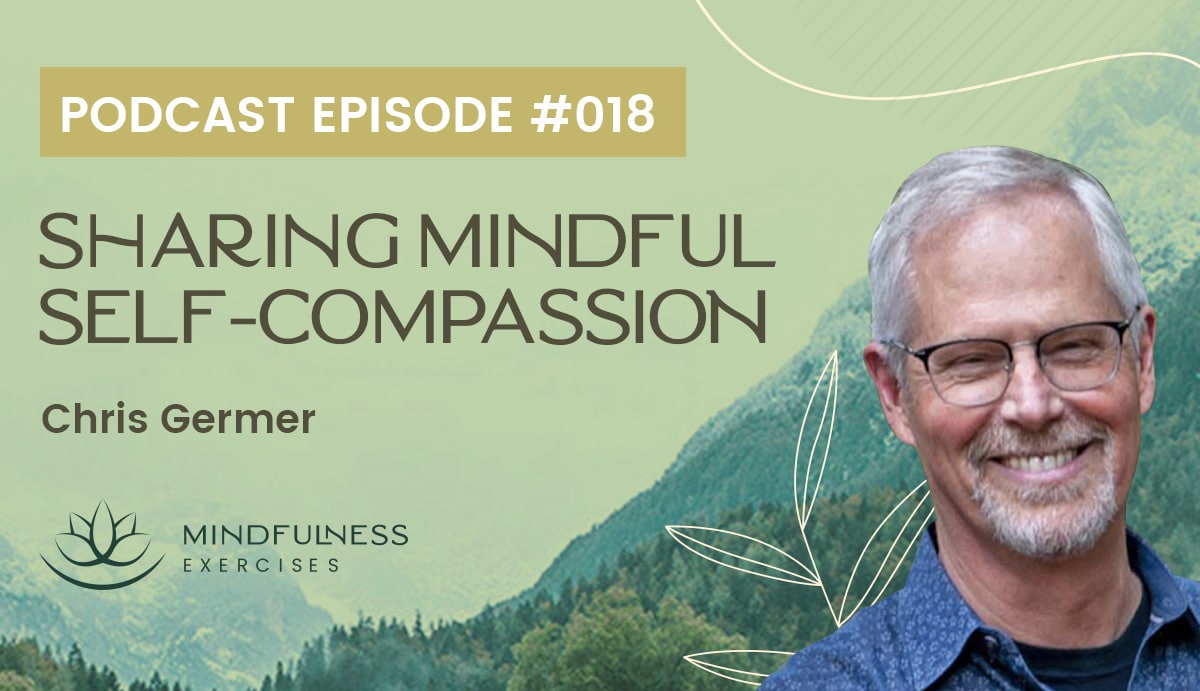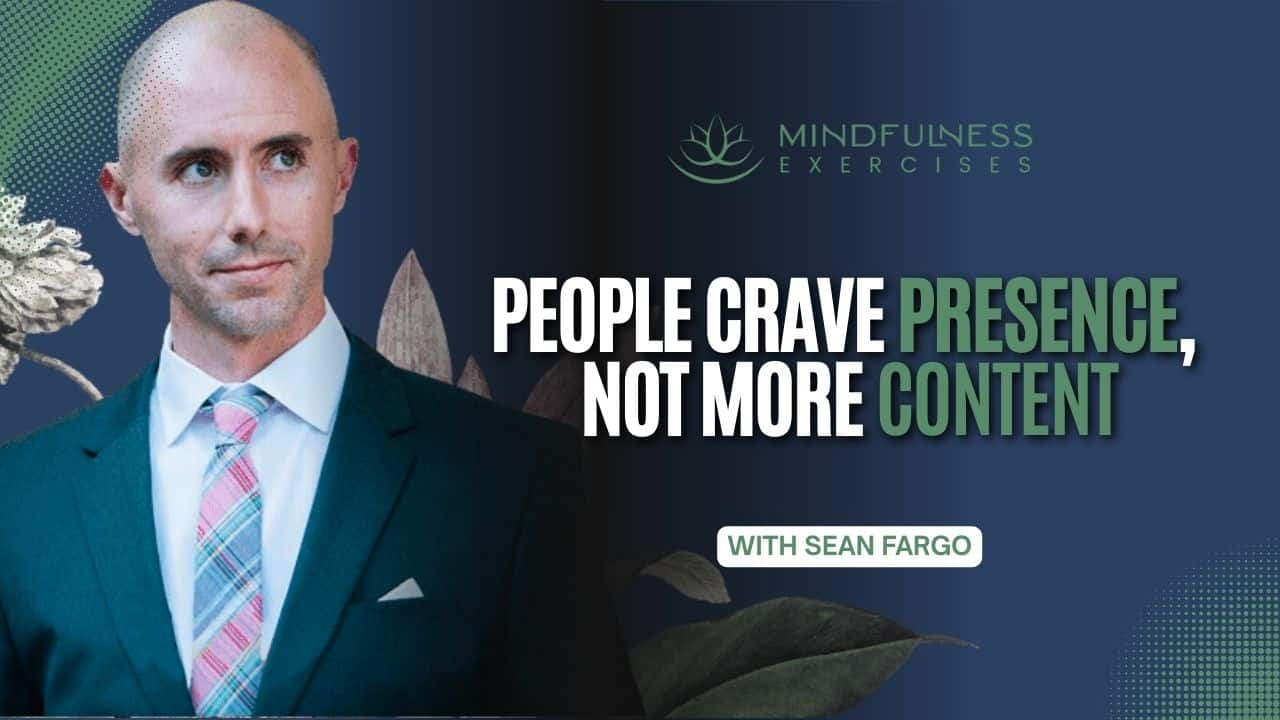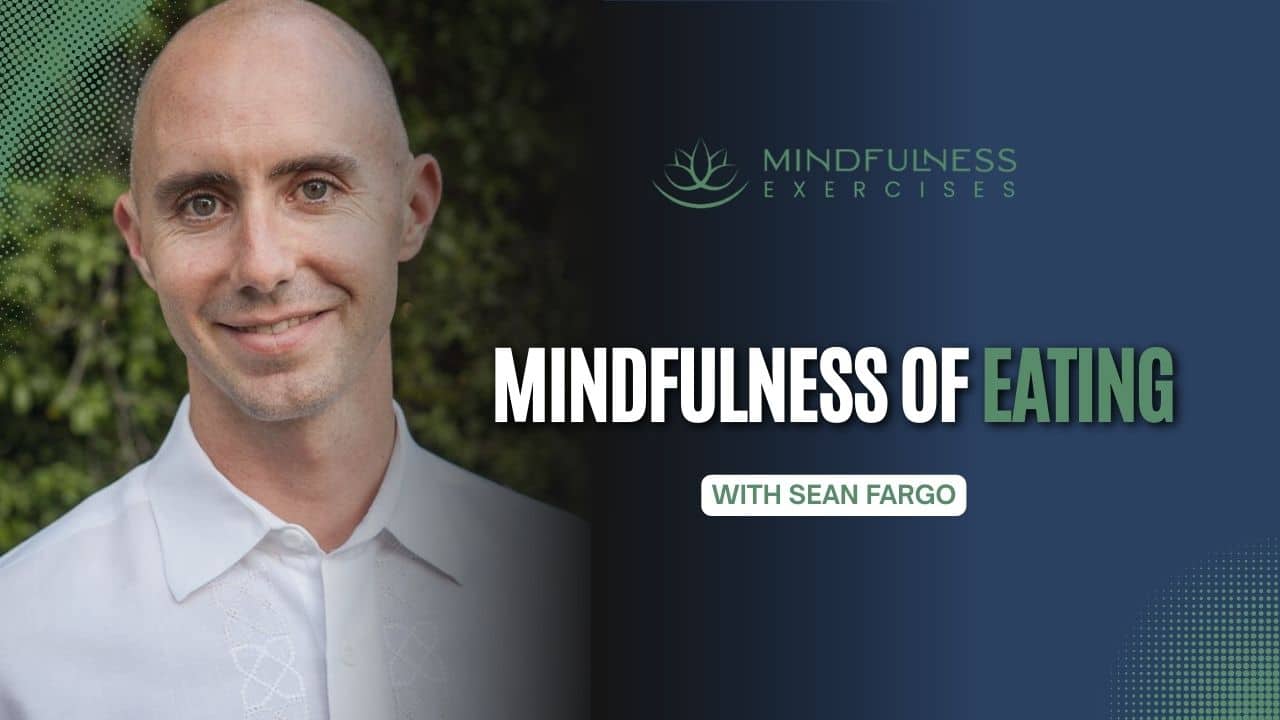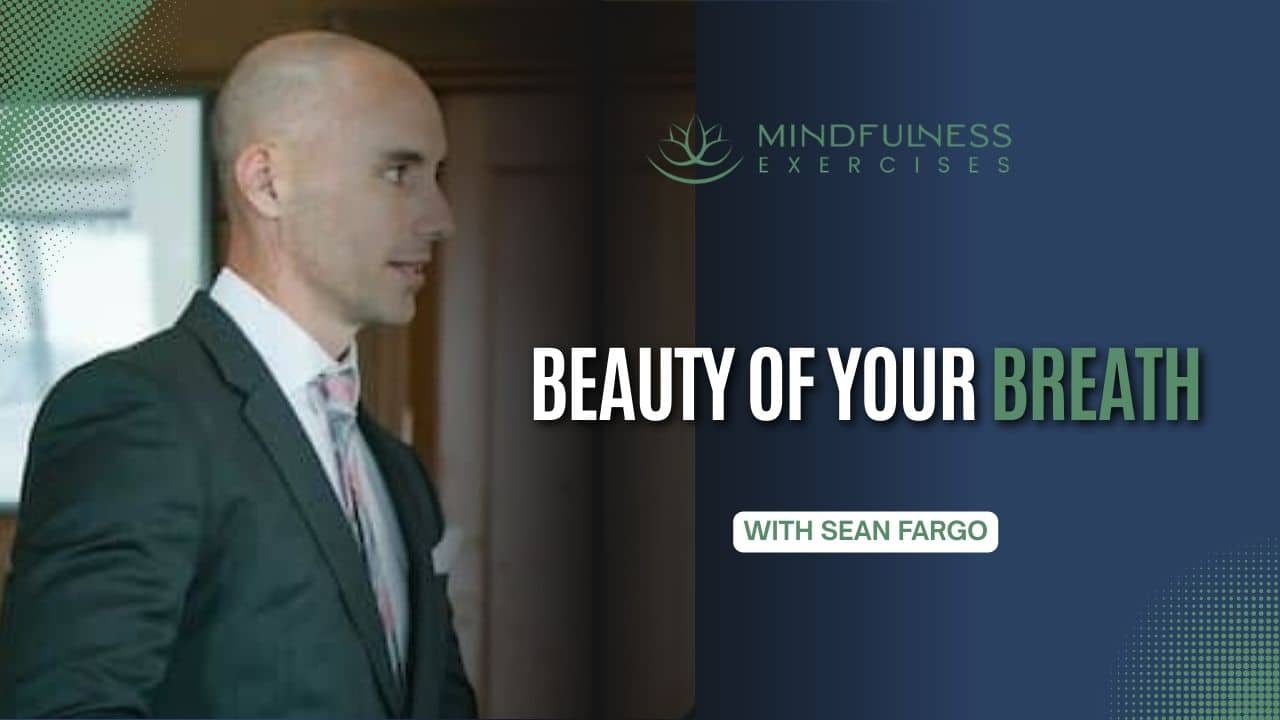Listen now

Self-compassion can be a tricky term, not to mention difficult to practice. We might mistakenly believe that it’s selfish or self-indulgent, or that compassion makes us weak. We may also have trouble extending to ourselves the same loving kindness that we so willingly offer to others.
In this episode, self-compassion expert Chris Germer shares why those beliefs couldn’t be further from the truth. Chris is an author, speaker and clinical psychologist who has greatly contributed to our understanding of self-compassion, how to cultivate it within ourselves, and how to teach it to others.
Sponsored by our Mindfulness Meditation Teacher Certification Program
certify.mindfulnessexercises.com
Show Notes:
Getting Started With Self-Compassion
Practicing self-compassion is like treating ourselves with the same gentle kindness and empathetic understanding that we would offer to a dear friend in their moments of hardship. By bringing mindfulness to how we’d most like to treat others we can learn to extend this same behavior to ourselves. With practice, we can become our own best friend.
“Just by thinking, how would I treat a friend, can I treat myself like this? And then overtime, developing that kind of friendship with yourself changes life. There’s never a moment of loneliness, there’s never a broken heart that isn’t touched by your own heart. So this is possible.”
The Problem with the Term ‘Self-Compassion’
Many people have difficulty with the reference to self, which we understand in Buddhist and mindfulness circles as the source of our suffering. We may also misperceive compassion as weakness. Chris, however, explains why this is far from his evidence-based understanding of self-compassion.
“Basically, self-compassion buffers the impact of negative experience in our lives. That warm embrace allows us to actually be with what’s happening, to learn from it and also to let it go. So self-compassion is not weak. It’s actually a powerful factor in emotional resilience.”
Compassion is Omni-Directional
The earliest teachings on compassion make no reference to self versus others, but invite us to cultivate a general state of benevolence that’s applied equally in all directions. With a sense of compassion as omni-directional, we can start by practicing in whatever direction feels most accessible to us. For example, we may begin by sending compassion to our loved ones, to those we hardly know, to those we find challenging, or to ourselves.
“Over and over we see that when self-compassion increases then compassion for others increases. This is very reliable. Partly I think because compassion per se is omnidirectional. It’s a state. It’s a state of being, and it can even be a personal trait, but it doesn’t quite have any rigid focus.”
A Yin-Yang Approach to Self-Compassion
It’s easy to forget there’s more than one way to show compassion. Germer discusses the work of his colleague, Kristin Neff, who breaks down the expression of self-compassion into yin-style validating and soothing and an active yang-style protecting and motivating.
“If you are in a burning house - the house is burning - what’s the most compassionate thing to do? Is it to sit in a chair and comfort yourself because the house is burning? I don’t think so. The most compassionate thing to do is to run for your life. To protect yourself. And so, we somehow forget this, that 50% of compassion is action in the world.”
How to Learn (and Teach) Self-Compassion
There are infinite ways to cultivate self-compassion. Getting a pet, walking in nature and practicing mindfulness have all been proven helpful. Anything we do to intentionally treat ourselves or others more kindly opens our hearts. We also learn from models, by mirroring the self-compassionate behavior of others. Germer challenges mindfulness teachers to ‘show, not tell’ by asking themselves, “can we teach self-compassion without mentioning the term?” Self-compassion is not just mental training, but a behavioral practice.
“So if you want your students to become more self-compassionate, show them, in your own relationship to yourself, how to be self-compassionate.”
Resources

About Chris Germer
Chris Germer, PhD, is an author, speaker, clinical psychologist and part-time lecturer on psychiatry at Harvard Medical School. In 2010, he and Kristin Neff co-developed the Mindful Self-Compassion (MSC) program, which has since been taught to over 200,000 people worldwide. The two have also co-authored two books on MSC, The Mindful Self-Compassion Workbook and Teaching the Mindful Self-Compassion Program. Chris is also the author of The Mindful Path to Self-Compassion. He spends most of his time lecturing and leading workshops around the world on mindfulness and self-compassion and maintains a small private practice in Arlington, Massachusetts, USA.



